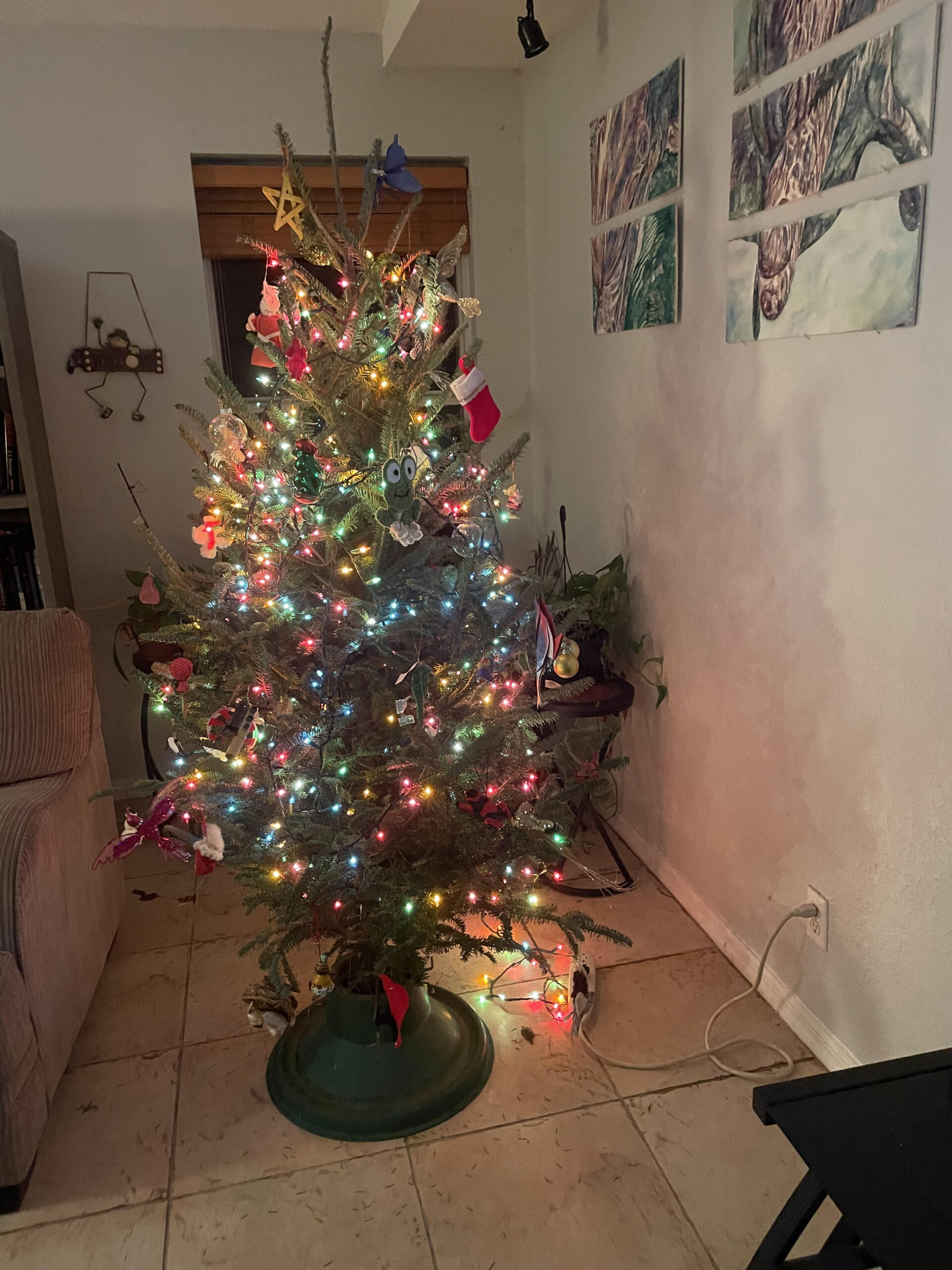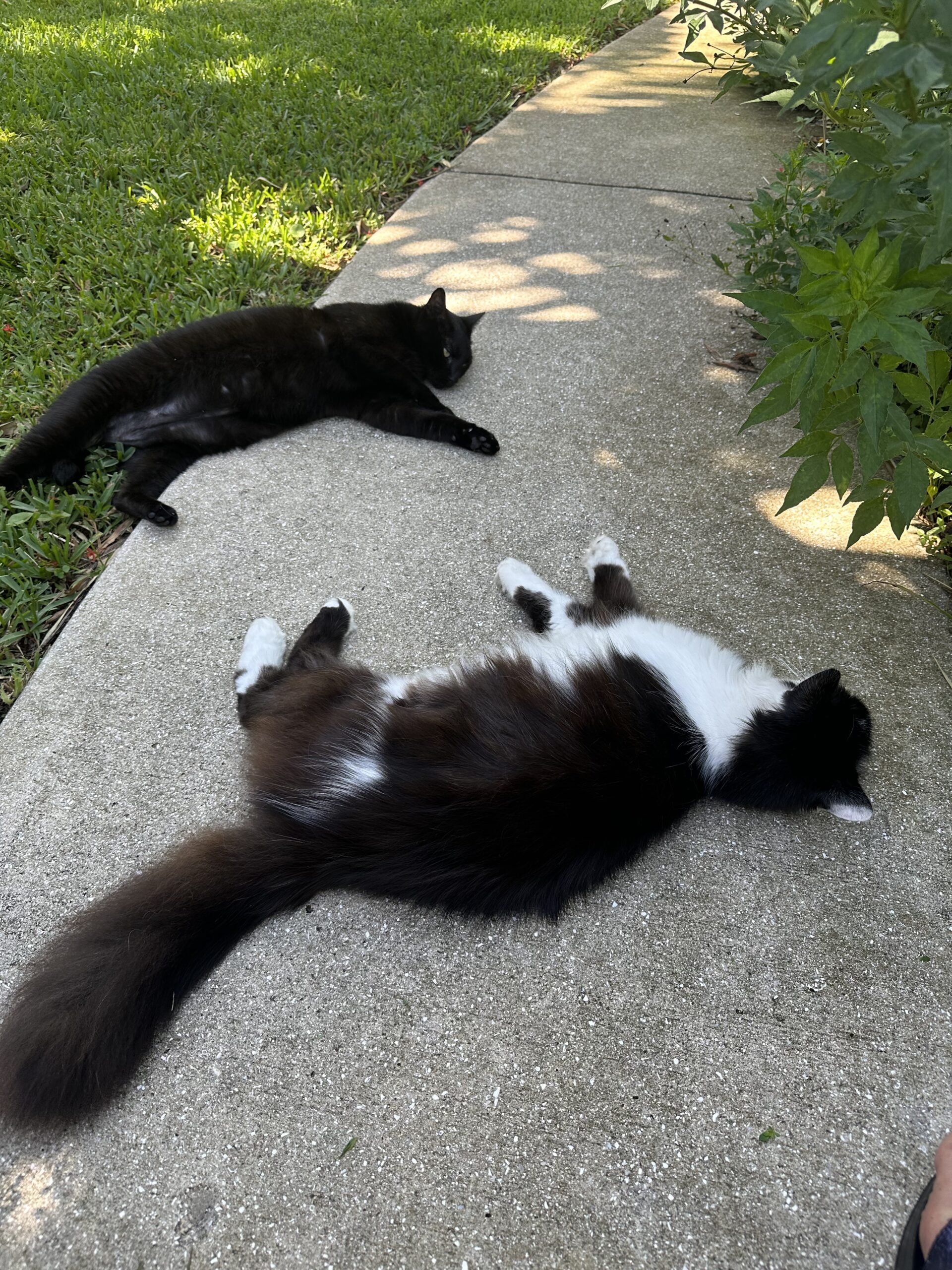
I sort of dreaded this Mercury retrograde – in two signs, Capricorn and Sadge. But today, Jan 1, Mercury turns direct at 10:08 p.m. ET and 7:08 PT, in Sagittarius.
So: snafus for me during the past 3 weeks? Well, we drove to Ga to spend the holiday with my brother in law and my sister’s large family. Between them, 5 kids with families, partners. The reunion was terrific. It has been more than 6 months since Mary’s sudden passing. There was only one instance where Mary’s oldest and second sons – Ardon and Avery- felt so deeply emotional they came out onto the porch, where I was tossing a ball to Nigel.
The trigger? Ardon’s wife, Kerri, had several toys made for the kids from a couple of Mary’s articles of clothing. There’s something visceral about this, something that grabs your heart and squeezes until you cry. For me, that moment came when Megan handed me a gift – a painting she had done of Mary and I. Everyone in that room got such a painting, all done from photos Meg had asked for.
Neal took one look at his and headed for the bedroom, where he placed the painting on a dresser where he would see it daily. Mine now hangs on our living room wall, above a painting Megan did of me from a photo when I was, hmm, maybe 20. These paintings were why we ended up taking two cars to Marietta. Meg wanted to finish them before she left, so she arrived in Marietta around two a.m., about three hours after we did.
There were moments when I felt Mary around. It wasn’t as immediate as this summer, with the hummingbird that flew so close to me I could see the color of its eyes. But the day before we left, Megan and I drove to Ashton’s tattoo shop in Atlanta and got our hummingbird tattoos. It’s my first, on my right forearm, and it didn’t hurt!
Megan also gave me a hummingbird feeder and I think I’m going to hang it in the mango tree just outside my office window. I’m told I should get nectar for it.
So I’m going into the new year – 2024!!- with the joy a hummingbird represents and the access it provides to the ones I love, living, dead, in between.
Happy New Year to everyone!















